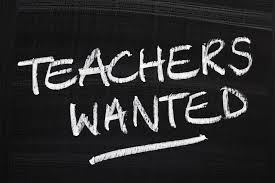A Teachable Moment for State Teaching Board
For years the Minnesota Board of Teaching has largely ignored licensing reforms passed by legislators. The reforms were aimed in part at easing the statewide teacher shortage by speeding up the process for licensing out-of-state teachers moving here. The changes were also designed to attract a more diverse teaching corps to address Minnesota’s embarrassing achievement gap in inner city classrooms.
Teachers went to court to get the state agency to follow laws passed to streamline the licensing system. The Minnesota State Legislative Auditor last year issued a critical report on the Board of Teaching and Minnesota Department of Education’s practices. Legislators went back to the drawing board.
The effort to hold the Board of Teaching accountable finally appears to be paying off with a comprehensive revamping of the teacher licensure system passing both the Minnesota House and Senate.
For educators like Derek Davidson and Troy Haugen, changes to the way Minnesota licenses teachers can’t come soon enough.
Both Davidson, a leader at an urban charter school, and Haugen, who helps provide technical education at rural schools, hope the overhaul of Minnesota’s teacher licensing system pending at the Legislature will make it easier for them to place qualified people in hard-to-fill jobs.
Minnesota faces a growing shortage of teachers in math, science, special education and technical programs. State education leaders hope fixing what has been described as a “broken” licensing process will make it easier for teachers trained out-of-state or in alternative ways to get into Minnesota classrooms.
“It is almost impossible to navigate the statute as it is right now,” said Haugen, who works for the Lakes Country Service Cooperative in Fergus Falls.
The Board of Teaching and Minnesota Department of Education would be relieved of their licensing duties, making way for a new Professional Educator Licensing Board. One of the most significant steps would be to support alternative licenses that help professionals with real world experience but no educational credentials demonstrate their qualifications for the classroom.
Haugen, of the Lakes Country Service Cooperative, which serves schools and other governmental bodies in western Minnesota, agrees that licensing barriers — often tied to the more traditional way of training teachers — make it tough to fill high-demand positions.
Haugen is working to create Minnesota’s first alternative teacher-licensing system that is not tied to an institution of higher education. He hopes to create a training program that gives professionals with technical expertise in fields like welding or medical sciences the skills they need to teach high school classes or oversee work-study programs.
“The expectation is not for alternative programs to be of lesser quality,” Haugen said.
The licensing changes at the Legislature would make it easier for alternative programs like the one Haugen hopes to create to get up and running. However, there are differences between the House and Senate proposals that need to be worked out before the legislation is sent to Gov. Mark Dayton.